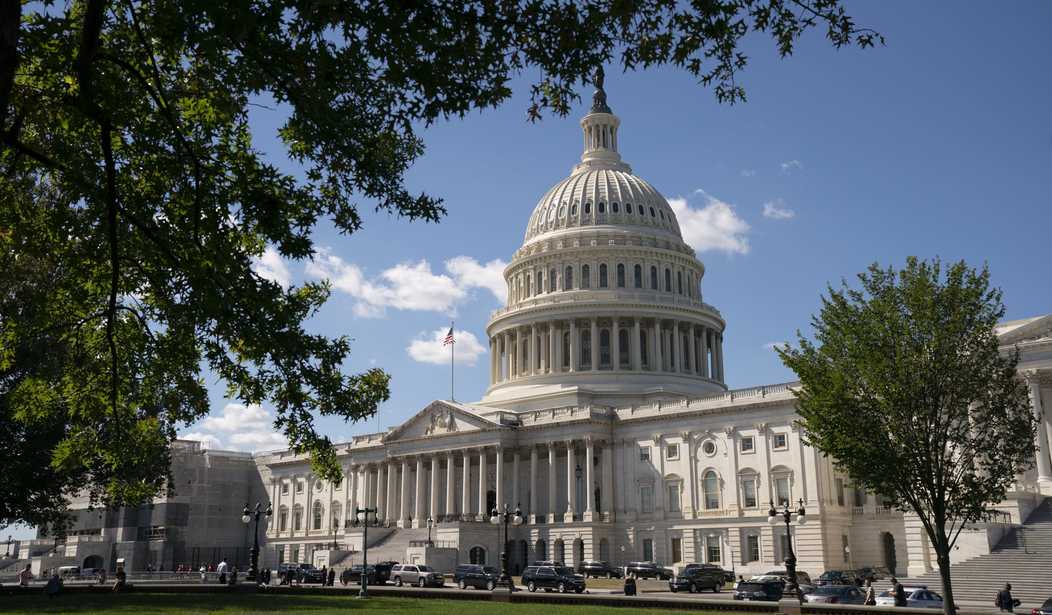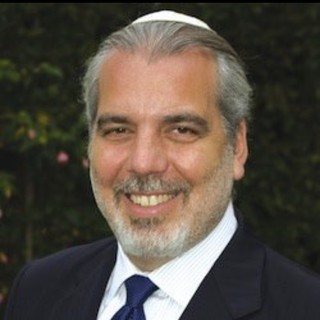There is a tradition within Judaism that all actions in the world can be viewed through the lens of the Torah reading of the week. Based upon that premise, each of these columns are to help us understand the politics of the world through a biblical lens.
Happy Thanksgiving! Although now considered a secular holiday, it was originally a religious celebration, and the concept of “thanks-giving” is an integral part of both Judeo-Christian teachings and this entire nation. It is especially important for our political leaders to remember the importance of gratitude (and the honest humility that comes as a result) as they consider whether they serve their constituents and the nation, or only serve themselves in a quest for personal power.
It is amazing that especially the members of the House of Representatives often forget this gratitude, especially given the architecture of the House chamber. Lining the walls of the chamber are 23 marble relief portraits of “lawgivers.” Twenty-two of them are side portraits showing the profile of each lawgiver’s face. But directly opposite the seat of the Speaker is a relief of Moses, the one lawgiver with his entire face showing. Moses: the most humble and grateful man who ever lived. A reminder to all the representatives, and especially the Speaker, to remember to be grateful for the opportunity to serve the people of this nation.
We see the biblical importance of being grateful in a powerful and subtle way in the different attitudes of the twin brothers Jacob and Esau featured in this week’s Torah reading (Toldot; Gen. 25:19-28:9). These twin sons of Isaac are part of the famous story of Jacob, the younger brother supplanting his older brother to ultimately become the patriarch. For centuries, sages have taught that one of the large differences between the two brothers was that Jacob was grateful for the gifts of his family and God, whereas Esau was narcissistic and only concerned with his own wants and desires without any real appreciation. (There are numerous other differences, but this is a large one exemplified in their respective behavior in the text.) In his gratitude for the blessings in his life, Jacob demonstrated one of the basic qualities true leaders need to have. Our leaders today should have that same deep sense of gratitude, but how can we all learn to create a deeper sense of appreciation for each moment of life and service?
There are three types of prayers that Jews traditionally say: prayers of praise; prayers of petition; and prayers of thanks and gratitude. (This does not include any of our forms of hisbodedus/meditation, which often involve a different form of dialogue than these three main divisions.) Of these, prayers of gratitude are in many ways the most important as they open up the locks of the other prayers. Once we truly feel gratitude for any of the gifts that God has provided us, it allows us to awaken our psycho-emotional state so that we can truly praise God, and know how and what to petition God for.
There is an exercise that I learned over 25 years ago from a student of Rav Weinberg, the founder of Aish HaTorah. I share it here in hopes that it can help all our Thanksgiving holiday joy continue all year.
The exercise is called a “gratitude journal.” Get a notebook, and spend an hour writing in it everything you can think of that you are grateful for. Often this is easy for the first 15-30 minutes, but spend the full hour and write down everything you can think of.
Then, every morning and every evening add something new to the journal. Maybe something you experienced that day, or something subtle or monumental…but something every morning and evening.
Over time, you will see a change in your life. This practice doesn’t take away pain, but for most of us who use it, it takes away the suffering that sometimes accompanies the pain of growth. Try it out for a few months and see if you start finding yourself happier, living and understanding life more fully.
This type of thanks is one of the foundation stones of Judaism, and as evidenced by the history of the Thanksgiving holiday in the United States as well as the architecture of the chamber, a foundation stone for our nation. It is why Rabbi Larry Goldmark, one of the leaders of the Reform Movement for over 40 years is fond of teaching the importance of the morning prayer “Modeh Ani,” the traditional first prayer a Jew says in the morning upon waking. “I give thanks before you, God, for returning within me my soul with compassion and eternal kindness…” When we begin our day with real gratitude, it affects every moment of that day with the fullness of Life.
Perhaps our political leaders should adopt one of these practices. By starting and continuing their day with a sense of thanks-giving, they might find it easier to emulate Jacob (and Moses) and ultimately become the leaders filled with integrity, gratitude, and honest humility that our nation so desperately needs in these challenging times.
May we all carry the gratitude for each moment in every moment, and may our leaders and especially the House of Representatives remember who they need to be and how they truly need to act: with hearts rooted in a real Thanksgiving.
Rabbi Michael Barclay is the Spiritual Leader of Temple Ner Simcha in Westlake Village, CA., and the author of “Sacred Relationships: Biblical Wisdom for Deepening Our Lives Together”. He can be reached directly at [email protected]










Join the conversation as a VIP Member